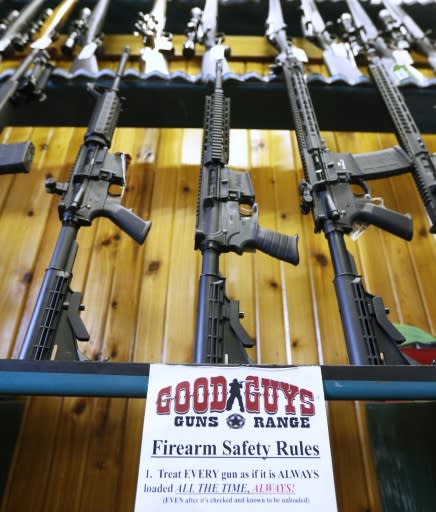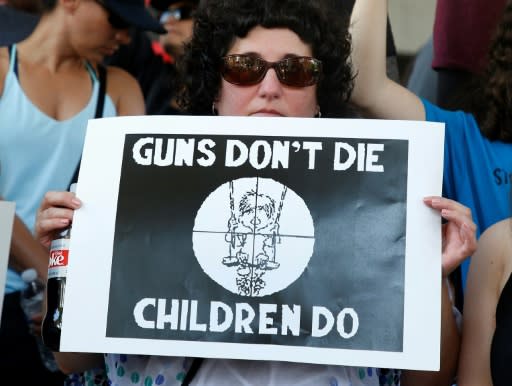US Supreme Court to take up gun control case
The US Supreme Court will address gun control on Monday for the first time in nearly 10 years with a majority of justices seen as supporting the rights of people who own firearms. In a country in which guns kill nearly 40,000 people every year, the nine-member court will again look at a case involving the Second Amendment to the US Constitution, which enshrines "the right of the people to keep and bear arms." The court ruled in a landmark decision in 2008 that the amendment guaranteed what it called an individual right to own a gun, and struck down a law that banned handguns. In 2010, it said this decision applied both at the state and federal level. "But it has not said very much about how courts should evaluate the constitutionality of other gun laws, such as restrictions on assault weapons, high capacity magazines, and concealed carrying," said Joseph Blocher, a professor of law at Duke University in North Carolina. The court has consistently declined to take up gun cases since the 2010 decision. But this year, it has agreed for the first time to rule on gun restrictions imposed in New York City in the name of public safety and opposed by the powerful National Rifle Association. In addressing this case, the court might take the opportunity to clarify how courts can decide whether gun restrictions are legal or not. - History and tradition - Defenders of stricter gun control laws are afraid the court will issue a ruling that undermines their cause. The court has undergone a marked shift to the right under President Donald Trump, who promised during the 2016 campaign to nominate judges who are firm believers in gun rights. Since taking office, he has filled two Supreme Court vacancies with conservative jurists, so liberals are now outnumbered 5-4. One Trump appointee, Brett Kavanaugh, has written in prior opinions that gun laws should be evaluated "solely on the basis of text, history, and tradition, rather than their effectiveness in addressing contemporary problems of gun violence," said Blocher. At issue is a New York City law that prohibited people from carrying guns outside their home except to firing ranges. Plaintiffs who challenged the law argued that it violated their rights by barring them from taking their weapons to a second residence or to shooting ranges outside New York City. They lost in the lower court, but when the Supreme Court decided in January to weigh in, the city responded by amending the law to allow for weapons to be carried to second residences or shooting ranges outside the city. Then having made those changes, the city asked the Supreme Court to declare the case moot -- a question that will be the first addressed in Monday's court session. - Victims' stories - The case is drawing attention in a country in which 30 percent of the adult popular owns at least one gun. Around 50 organizations have filed friend-of-the-court briefs. The Trump administration has supported the gun rights side by filing a brief that echoes arguments Kavanaugh has made. On the other side of the issue, an organization called March for Our Lives -- founded after a school shooting last year in Parkland, Florida that left 17 people dead -- is skipping legal arguments and trying to win over the justices with emotional accounts of the ravages of gun violence. In a lengthy brief, it details the suffering of young people from the epidemic of gun violence: one survived a shooting by hiding under a slain friend's body; another was hit in the head by a stray bullet; and yet another lost a brother to gang violence. The stories "represent tens of thousands of other young people who are weighed down by the threat of gun violence every day, and who are pushing policymakers to keep them safe. The court?s ruling here must not deprive them of their hope and their ability to effect change through the political process." If the court does not declare the case moot, it will hand down a decision by June, with the 2020 election campaign well underway. A gun rights advocated with a cap bearing the initials of the National Rifle Association stands outside the Supreme Court in 2008 Semi-automatic rifles on sale in a store in Utah in February 2018 President Donald Trump (L) greets the two conservative judges he appointed to the court: Brett Kavanaugh (R) and Neil Gorsuch (center), on February 5, 2019 People who support tighter gun laws demonstrate in Fort Lauderdale, Florida in February 2018





